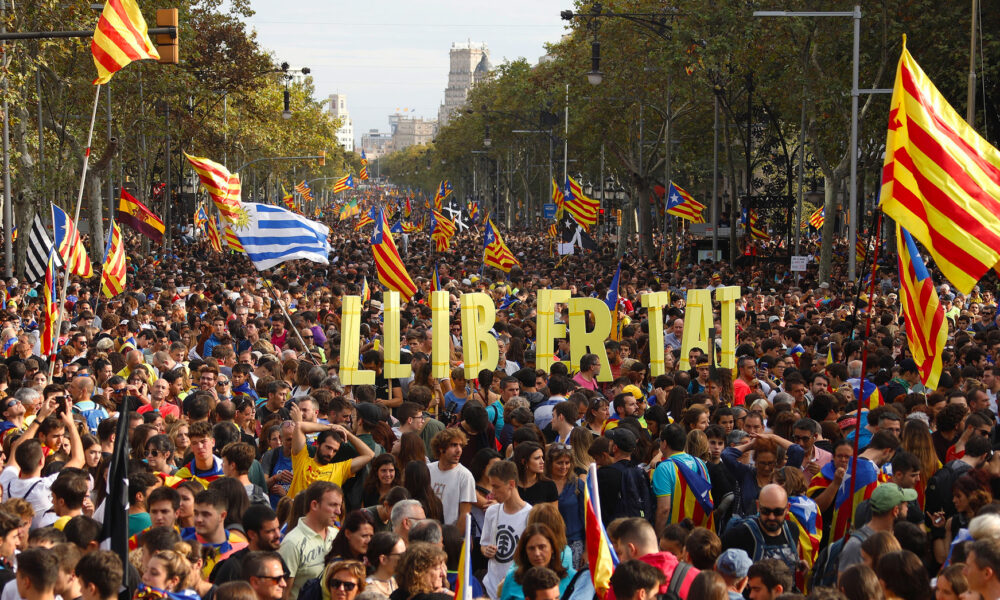Top UN Officials Resign Over The Organization’s Incapability To Protect Human Rights In Palestine
November 30, 2023

On Tuesday February 16th, 32-year old rapper Pablo Hasél was arrested by police in a Catalan university, where he had been barricading to avoid a 9-month jail sentence issued in 2018.
The rapper, whose real name is Pablo Rivadulla Duro was convicted under “glorification of terrorism” “insulting the crown” and “offending religious sentiment” charges.
According to the Guardian, on his Twitter account, the rapper paid homage to armed Spanish groups such Grapo, a Marxist “anti-fascist resistance” organization accused of roughly 1,000 acts of violence between 1975 and 2003, including 80 murders, attempted murders, and various kidnappings.
In addition to being fined for insults towards former king Juan Carlos I and for accusing police of torturing and killing demonstrators and migrants, Hasél also tweeted about members of the now defunct Basque separatist organization Eta, responsible for killing at least 853 people over several decades.
Angered by the arrest, thousands of young Spaniards have taken to the streets since Tuesday, after the rapper was detained.
The protests that first erupted in Hasél’s hometown in Catalonia have spread across Spain, and have since turned violent as police clash with demonstrators especially in Barcelona and Madrid, with Saturday being the fifth consecutive night of disturbances.
Armed with cans, firecrackers and bottles, protestors have directed attacks both at the police and at private property, as several shops have been destroyed in major cities, including the Barcelona stock exchange building.
The violent clashes that have led to more imprisonments and left many injured throughout the country, have raised serious questions on Spain’s laws regarding freedom of speech.
Over 200 artists in Spain, from the likes of Javier Bardem and Pedro Almodóvar, have signed a petition urging authorities to respect said human right.
Amnesty International, through their director in Spain, Esteban Beltrán stated “No one should face criminal prosecution only for expressing themselves on social media or for singing something that may be distasteful or shocking. Expressions that do not clearly and directly incite violence cannot be criminalized.”
As reported by Euronews, following the protests over Hasel’s case, Spain’s left-wing coalition government has said it will change the country’s criminal code to remove prison sentences for offences involving freedom of expression – but thus far there has been no deadline set.